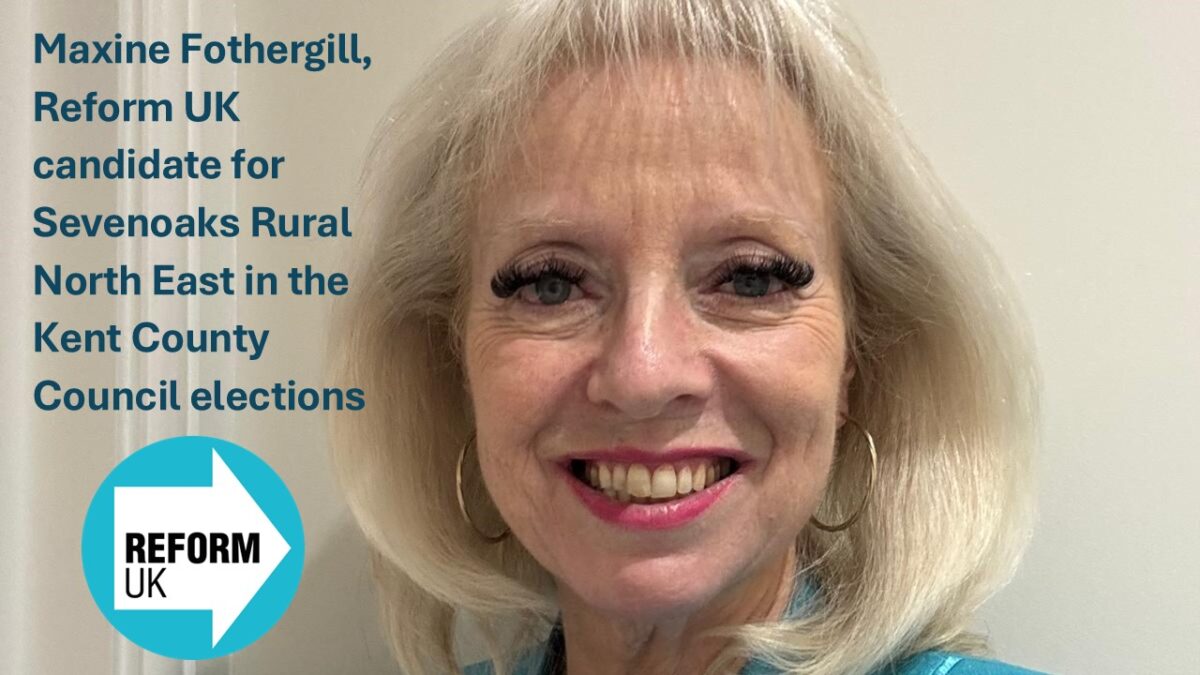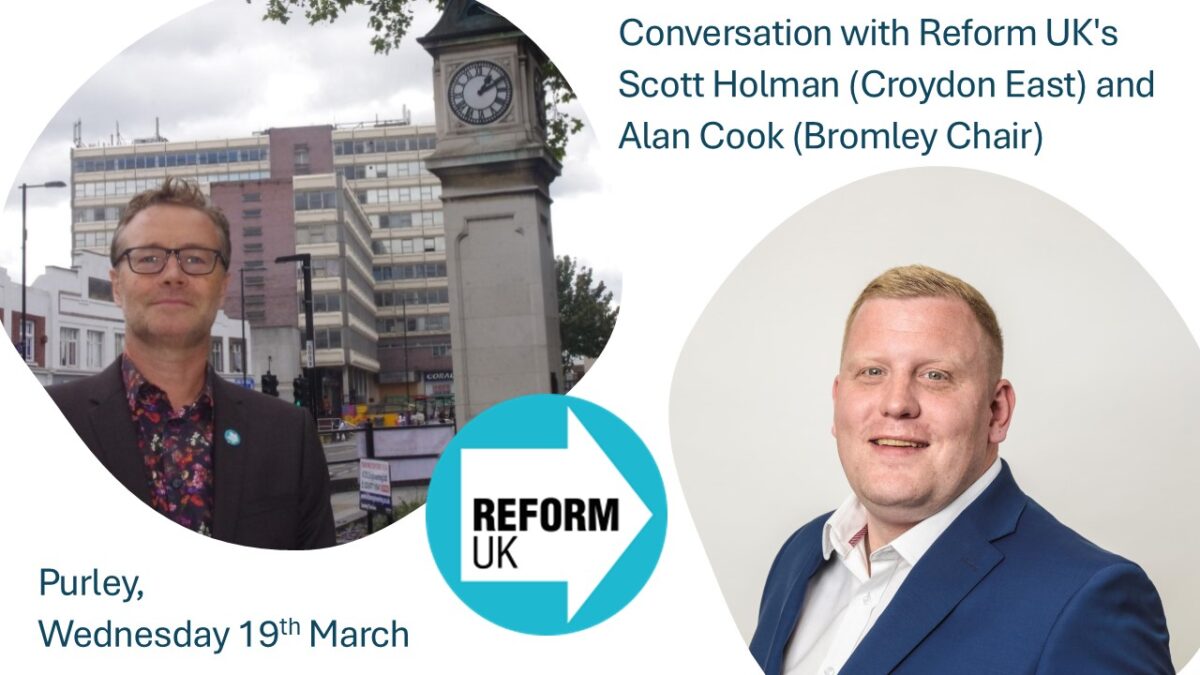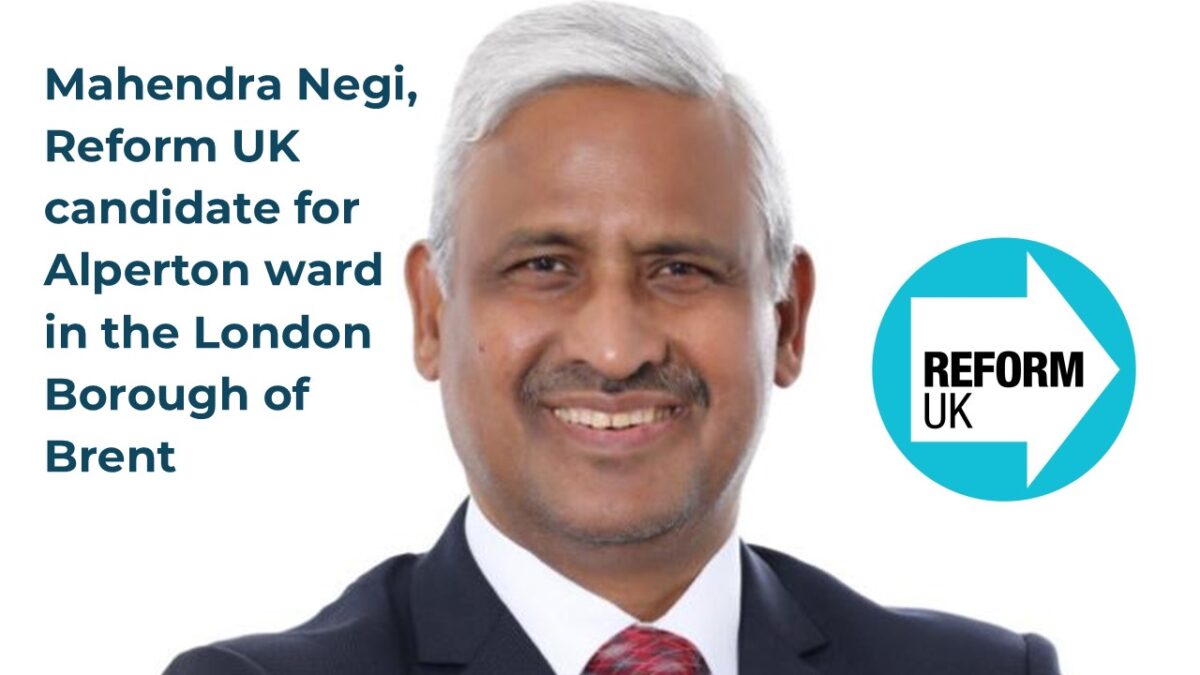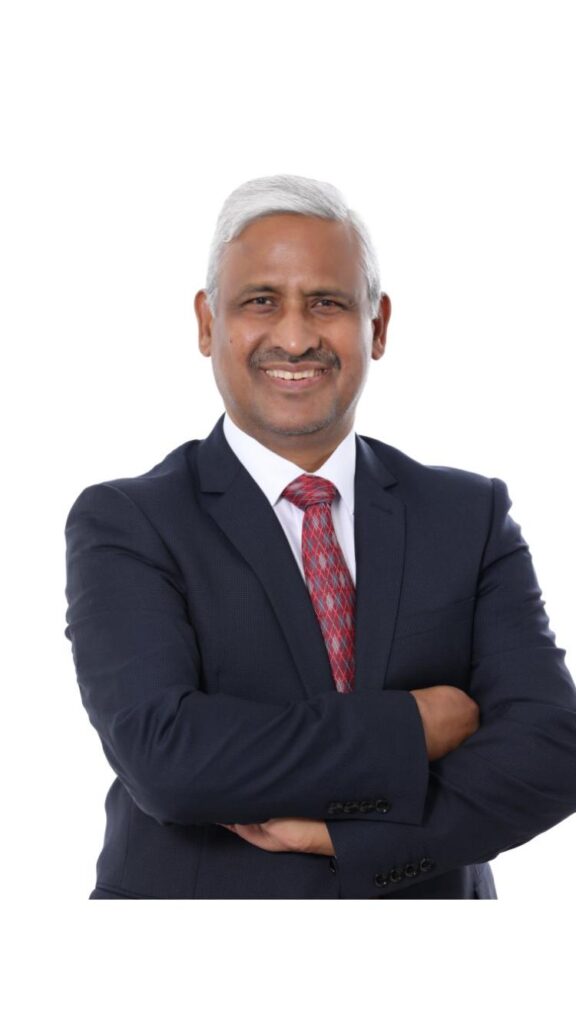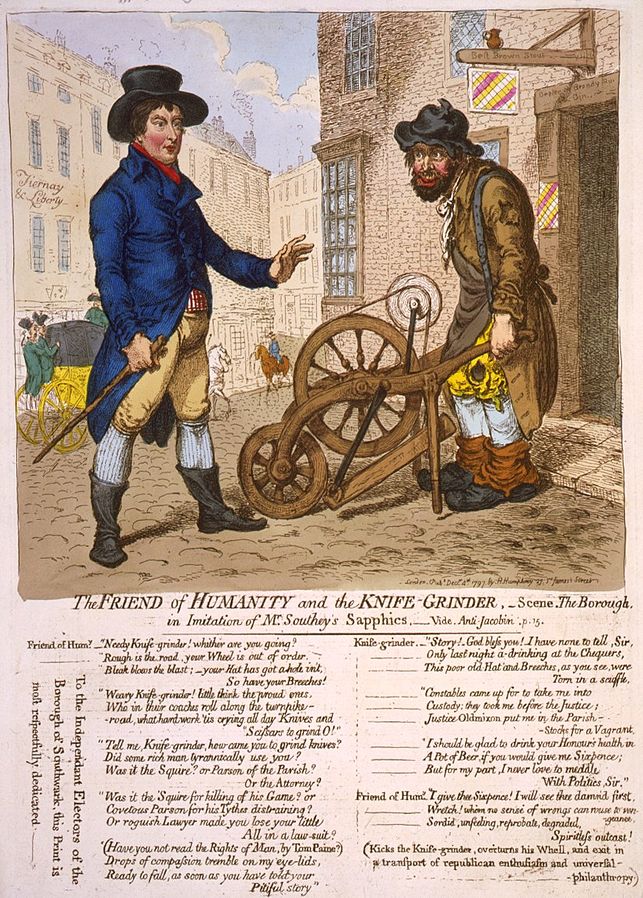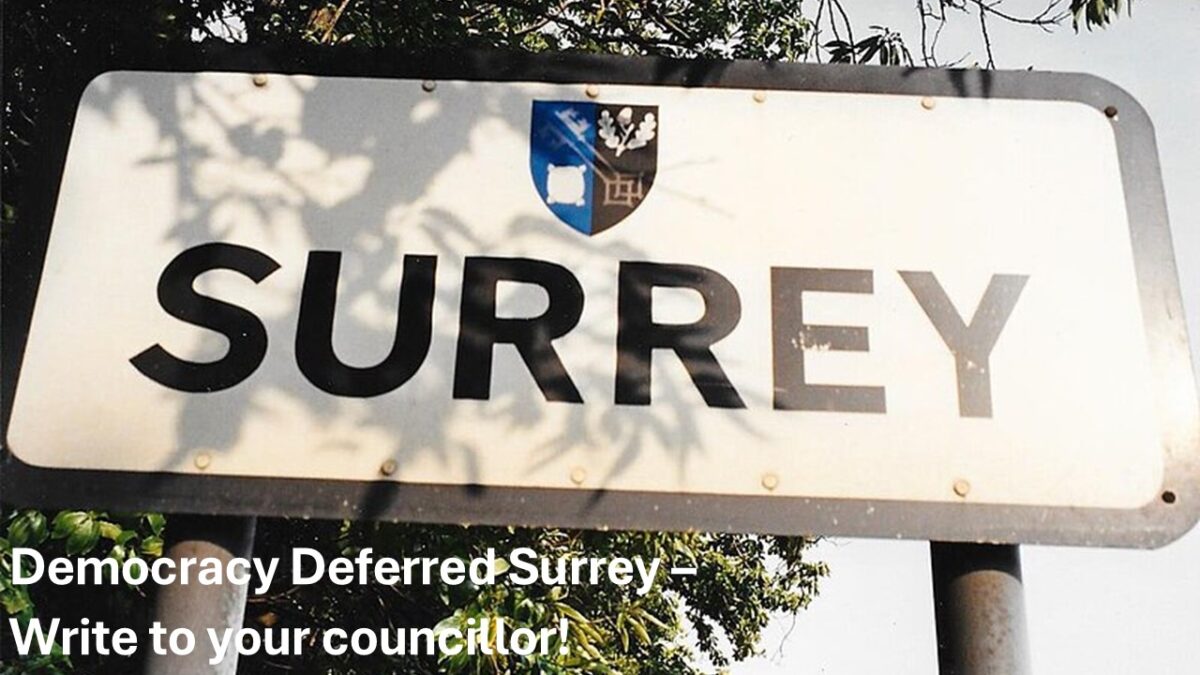At our My tuppenceworth evening on the 19th February Mike Swadling spoke about his ideas for a Croydon DOGE.
“As significant as stopping the waste in the £50 billion budget is, I suspect more savings are being made by the cultural impact that DOGE is bringing about”
I want to talk briefly about DOGE, Department of Government Efficiency. But I want to localise it a little bit and talk about a Croydon DOGE. We’ve all seen DOGE and Elon Musk’s team going to USAID and strip back huge amounts of government spending.
As significant as stopping the waste in the £50 billion budget is, I suspect more savings are being made by the cultural impact that DOGE is bringing about.
Most government workers are not on the take. They’re not politically motivated. Most middle managers with an authority to spend will simply be going about their job and responding to the incentives and cultures of the organisation they’re in. And I say this as a middle manager with an authority to spend most of my career. Overnight that culture has changed from one of ‘no one asked- questions regarding the spending’ to ‘don’t let what you signed off become the laugh line of the White House press secretary’.
I suspect that undocumented cultural change is saving many more billions of dollars than perhaps the direct work that DOGE is doing.
“Does anyone know who received £171,356.72 Borough of Culture Payments in 2024?
I can’t tell you. No one knows, because that’s the total amount of redacted payments that they’re not telling us who they gave it to”
I want to ask you a question.
Does anyone know what links, Savvy Theatre, The Enriched Kids CIC, SDNA LTD, and Fashion Meets Music Collective C.I.C.?
They all received £2,000 from Croydon Council last year as part of a Borough of Culture payment.
Another one.
Does anyone know what links, Talawa Theatre Company, THE GREATEST SHOW ON EARTH LIMITED T/A The Circus, Scanners Inc, and Double Take Projections LTD?
They all received payments between £40,000 and £65,000 from Croydon Council last year as part of the Borough of Culture.
Does anyone know who received £171,356.72 Borough of Culture Payments in 2024?
I can’t tell you. No one knows, because that’s the total amount of redacted payments that they’re not telling us who they gave it to.
Croydon, yes, the bankrupt borough of Croydon, was the London Borough of Culture in 2023. All of those payments came in 2024, and many of them very late on.
“Whilst the £813,000 worth of payments from the Borough of Culture that I can find, barely touch the sides of this £136 million that the council needs, it does, if you pardon the pun, set the culture of spending”
Croydon is a de facto bankrupt borough and is requesting a £136 million bailout from the government after overspending by at least £98 million this year and is predicted to overspend by £83 million next year. Whilst the £813,000 worth of payments from the Borough of Culture that I can find, barely touch the sides of this £136 million that the council needs, it does, if you pardon the pun, set the culture of spending.
One can hardly be surprised when a council officer providing actual services overspends their budget when they know the council has given £10,000 to the Brit School, or £6,000 to the Bureau Of Silly Ideas Limited, or £3,100 to The Poetry Takeaway Ltd. Often, of course, these funds are accompanied by a photo opportunity for a plethora of Croydon dignitaries. What is their incentive to reduce spending if you’re actually trying to provide a real service?
The council, of course, has been quick to try and fix its financial problems by raising funds off the backs of the people of Croydon. In 2023, Croydon’s council tax went up 15%. Despite Mayor Jason Perry promising to scrap Low Traffic Neighbourhoods or LTNs, he backtracked and is alleged to have said because “£20m of future income … would have to be replaced”. The council even floated the plan to impose a workplace parking levy on car park spaces, as if the people of Croydon needed more reasons not to return to the office or indeed invest in Croydon.
We need a cultural change in Croydon, and specifically at the borough. Not everything needs to be hiking taxes or even sweeping cuts to services. We need a cultural change at Croydon Council to have it focus on key services, on the people of Croydon, and on not wasting money.
“Is there any chance the taxpayers of Croydon can get an Independence Day from all this spending? We need a DOGE Croydon to publicly, and perhaps more importantly, within the Council, ring the alarm at this waste”
If you look at Your Croydon, the newsroom for the Executive Mayor, Jason Perry, the top story is Croydon’s proposed licensing scheme to tackle rogue landlords. A quick flick down the page then boasts about a new flagship programme to support residents to be healthier. Are these two things needed? Are they even a good idea? Does a bankrupt borough need to be spending money on things like this?
In the past year, the Civic Mayor of Croydon has raised the flag outside Croydon Town Hall for Uganda Independence Day, Nigerian Independence Day, India Independence Day, Pakistan Independence Day, all with the accompanied photo ops and no doubt receptions for local dignitaries. Is there any chance the taxpayers of Croydon can get an Independence Day from all this spending? We need a DOGE Croydon to publicly, and perhaps more importantly, within the Council, ring the alarm at this waste.
“I would question whether the £10,000 to £38,000 payments for services were really fully costed, or whether that was just a number somebody decided to charge us”
We need to set the stall out that costs are being cut and that Croydon taxpayers’ cash is not some slush fund for Council officers to dip into. The Council will say, of course, that they are cutting payments and not wasting money, but I’m sure if we had a Croydon DOGE operating, they would have questioned the £7,550 paid to Emergency Exit Arts, the £10,000 paid to Sound Diplomacy Limited, the £13,200 paid to Giant Cheese Limited, or the £38,000 paid to Croydonites Festival of New Theatre CIC. All of these were made in one payment, no doubt for a well provided service, but isn’t it interesting how suspiciously round these numbers often are.
I would question whether the £10,000 to £38,000 payments for services were really fully costed, or whether that was just a number somebody decided to charge us. These all came from the Cultural Growth Fund at Croydon Council. That’s not the London Borough of Culture Fund I mentioned a moment ago. That’s a different fund. Don’t worry, when they can no longer waste your money on being the London Borough of Culture, they can give it away in Croydon Cultural Growth.
On that note, another question for you.
Can anyone tell me what the Culture Growth Fund spent £55,625.98 on?
I’ve given you a clue already. That’s the redacted amount. I can’t tell you what they spent it on. They don’t tell us. We live in a democracy. We live in an era of freedom of information, and they don’t tell us who our money went to.
Now I should declare a slight conflict of interest here. There has been a recent story on Croydon Council spending £3,077 of taxpayers’ money on teas, biscuits, sandwiches and other refreshments in 2024. I must admit to being the recipient of these. I have volunteered some time at the Council and received free tea and coffee for this. I’ve even had some sandwiches and biscuits on an all-day training course to enable me to do such things. I don’t mind admitting that when I give up many hours of free time, frankly, I do expect a cup of tea in return.
But lastly, I will say if this cost is of concern to you, might I suggest the council simply in future hold back from funding Stuco Design Limited, Premm Design Limited, or Continental Drifts, no I’ve never heard of any of them either, all of whom received more than £3,000 from Croydon Council in 2024 for Cultural Growth.



